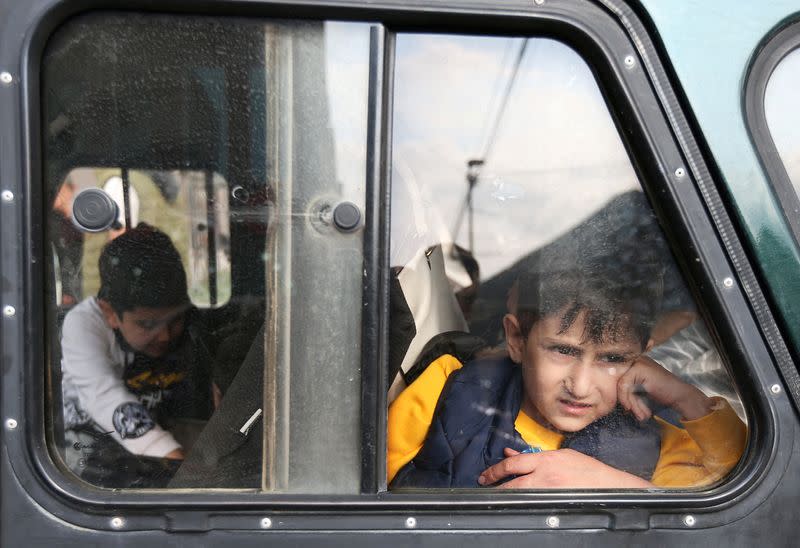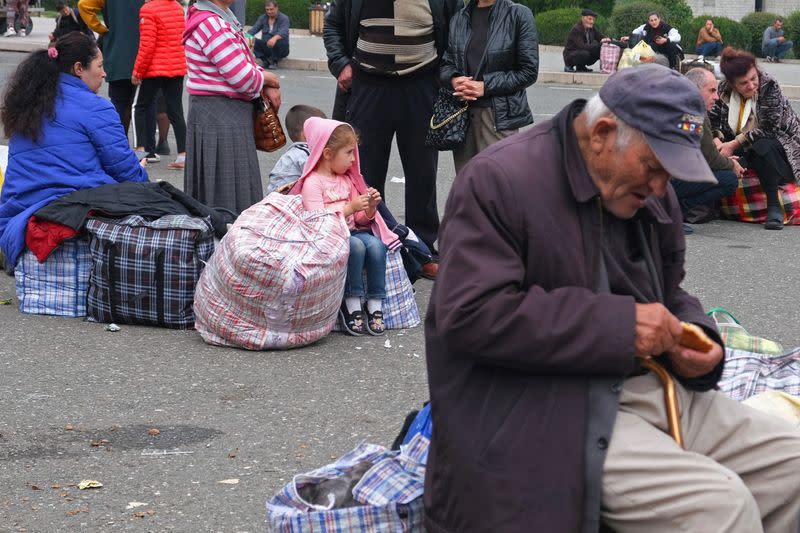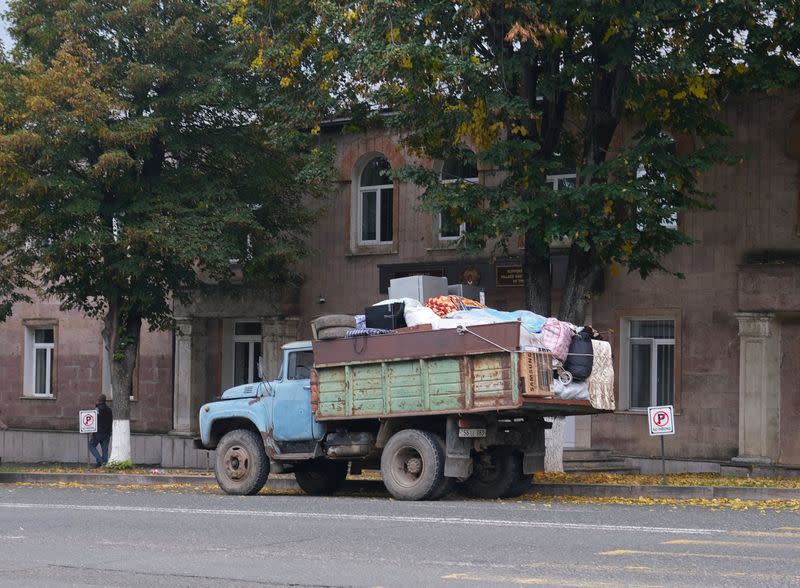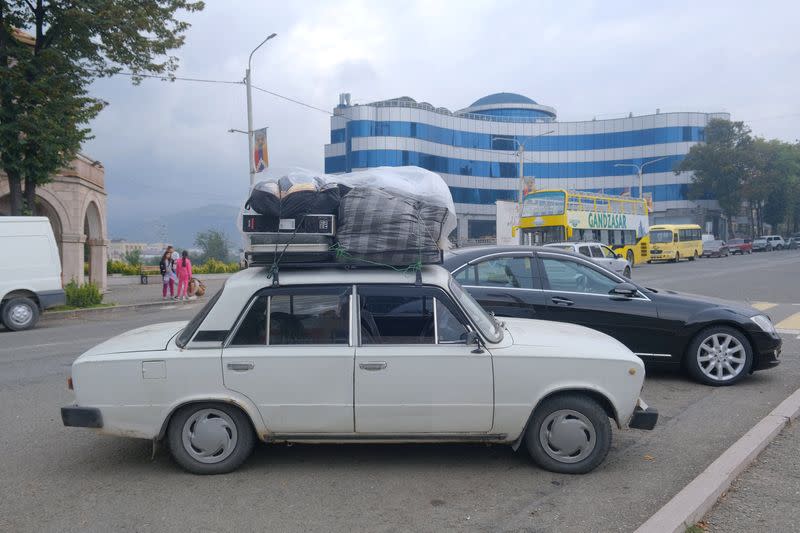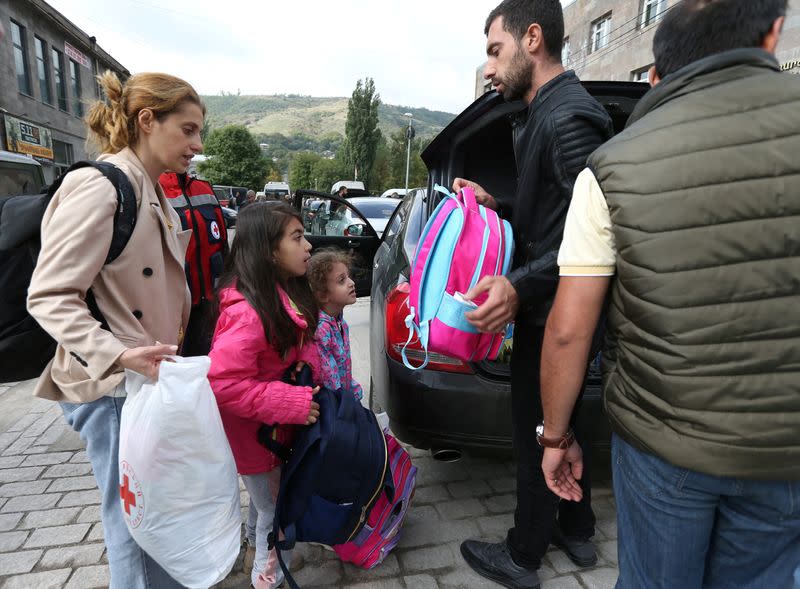Russia, US trade diplomatic blame over instability in Karabakh crisis
1 / 5Russia, US trade diplomatic blame over instability in Karabakh crisisRefugees from Nagorno-Karabakh arrive in Goris(Reuters) -Moscow and Washington have accused each other of destabilising the South Caucasus region, as thousands of ethnic Armenians fled their homes in Nagorno-Karabakh over fears of ethnic cleansing.Although Armenia had relied on a security partnership with Russia since the breakup of the Soviet Union, their relations have frayed badly after President Vladimir Putin launched the invasion of Ukraine in 2022."We urge Washington to refrain from extremely dangerous words and actions that lead to an artificial increase in anti-Russian sentiment in Armenia," Anatoly Antonov, the Russian ambassador to the United States, said on messaging app Telegram.Antonov's comment on Tuesday follows remarks the previous day by a spokesman for the U.S. State Department after Armenia blamed Moscow for failing to intervene in last week's capture of Nagorno-Karabakh by Azerbaijani forces.
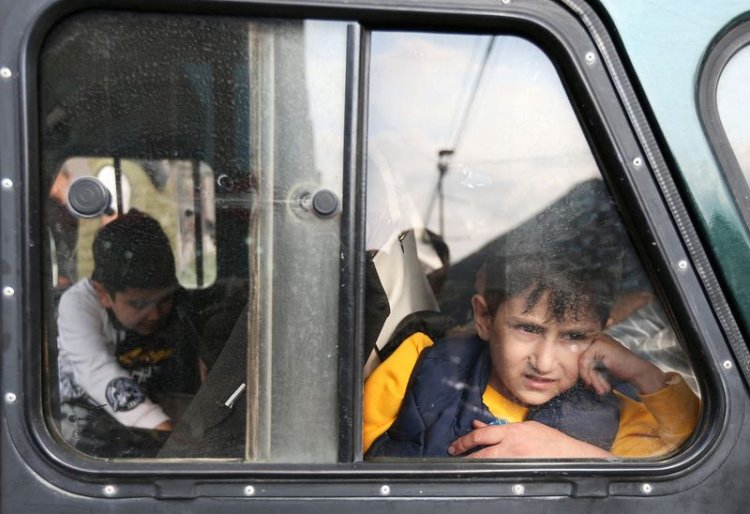
(Reuters) -Moscow and Washington have accused each other of destabilising the South Caucasus region, as thousands of ethnic Armenians fled their homes in Nagorno-Karabakh over fears of ethnic cleansing.
Although Armenia had relied on a security partnership with Russia since the breakup of the Soviet Union, their relations have frayed badly after President Vladimir Putin launched the invasion of Ukraine in 2022.
"We urge Washington to refrain from extremely dangerous words and actions that lead to an artificial increase in anti-Russian sentiment in Armenia," Anatoly Antonov, the Russian ambassador to the United States, said on messaging app Telegram.
Antonov's comment on Tuesday follows remarks the previous day by a spokesman for the U.S. State Department after Armenia blamed Moscow for failing to intervene in last week's capture of Nagorno-Karabakh by Azerbaijani forces.
"I do think that Russia has shown that it is not a security partner that can be relied on," Matthew Miller, the spokesman, had told reporters.
Thousands of ethnic Armenians had fled the breakaway region of Nagorno-Karabakh by Monday, after their fighters were defeated in a lightning military operation by Azerbaijan last week.
Baku has promised to protect the rights of the roughly 120,000 Armenians who call Karabakh home but few accept its assurances. Armenian Prime Minister Nikol Pashinyan blamed Russia for failing to ensure Armenian security.
The mass departure took place amid confusion and fear.
More than 200 people were injured in a blast at a gas storage depot on a road outside the Karabakh capital, known as Stepanakert by Armenia and Khankendi by Azerbaijan, domestic media said on Monday.
Reuters was able to pinpoint the location of the landscape, buildings and structures seen on satellite images of the fire as the region of Berkadzor, about 6 km (3.7 miles) outside Stepanakert, but was not able to verify the timing.
Washington and some Western allies condemned the Azeri hostilities, which have changed the contours of the South Caucasus, a patchwork of ethnicities crisscrossed with oil and gas pipelines where Russia, the United States, Turkey and Iran vie for influence.
Moscow has said Armenia only had itself to blame for Azerbaijan's victory over Karabakh because it flirted with the West rather than working with Moscow and Baku for peace.
On Monday, senior U.S. officials arrived in Armenia, making the first such visit since the Karabakh Armenians were forced into a ceasefire last week.
From 1988 to 1994 about 30,000 people were killed and more than a million, mostly ethnic Azeris, displaced as theArmenians threw off nominal Azerbaijani control in what is nowknown as the First Karabakh War.
Azerbaijan regained territory in and around Nagorno-Karabakh in a second war in 2020 that ended with a peace deal brokered by Moscow and deployment of Russian peacekeepers.
Turkey, which backed Azerbaijan with weaponry in the 2020conflict, said last week it supported the aims of Azerbaijan's latest military operation but played no part in it.
(Reporting by Lidia Kelly in Melbourne; Additional reporting by Nur Azna Sanusi in Singapore; Editing by Michael Perry and Clarence Fernandez)
What's Your Reaction?








